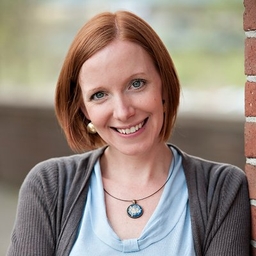
Carrie MacMillan
Senior Clinical Writer at Yale Medicine
Writer, Yale School of Medicine, New Haven, Conn.
Articles
-
1 week ago |
yalemedicine.org | Carrie MacMillan |Carrie Macmillan
Most people who are bitten by a tick know to look out for the telltale bull’s-eye rash that can indicate Lyme disease. But there is another tick-borne condition—alpha-gal syndrome (AGS)—that has no such visible clue and causes an allergy to red meat and other products derived from mammals. Alpha-gal, which is short for galactose-a-1,3-galactose, is a sugar molecule found in all mammals except for humans and primates.
-
2 weeks ago |
yalemedicine.org | Carrie MacMillan |Carrie Macmillan
At a time when modern medicine is allowing people to enjoy longer, fuller lives, mortality is not always a chief concern. But when a serious illness occurs, the topic becomes unavoidable. This became especially clear during the early days of the COVID-19 pandemic when hospitals were overrun with patients, many with grim prognoses.
-
2 weeks ago |
yalemedicine.org | Carrie MacMillan |Carrie Macmillan
Like many obstetrician-gynecologists, Hugh Taylor, MD, was sold on his profession the moment he delivered his first baby. Until then, Dr. Taylor, now chair of obstetrics, gynecology and reproductive sciences and chief of obstetrics and gynecology at Yale New Haven Hospital, had planned to focus on cancer research after he finished his medical training. But the sheer drama of childbirth—and all that must go right to make it happen—captivated him.
-
3 weeks ago |
yalemedicine.org | Carrie MacMillan |Carrie Macmillan
Diagnosing Alzheimer’s disease has been a complicated process that involves a clinical evaluation from a neurologist and either brain imaging tests or a spinal tap. The imaging test most often used is a specific positron emission tomography (PET) scan, which shows the presence of amyloid plaques—a hallmark of Alzheimer’s—in the brain.
-
1 month ago |
yalemedicine.org | Carrie MacMillan |Carrie Macmillan
Keeping symptoms at bay is important for anyone with inflammatory bowel disease (IBD)—an umbrella term for ulcerative colitis and Crohn’s disease, two conditions that cause chronic inflammation of the digestive system. That inflammation can lead to diarrhea and abdominal cramping and pain. In the past, doctors relied on symptoms or invasive testing to gauge how well a medication, a primary treatment for IBD, was working.
Try JournoFinder For Free
Search and contact over 1M+ journalist profiles, browse 100M+ articles, and unlock powerful PR tools.
Start Your 7-Day Free Trial →X (formerly Twitter)
- Followers
- 148
- Tweets
- 161
- DMs Open
- No